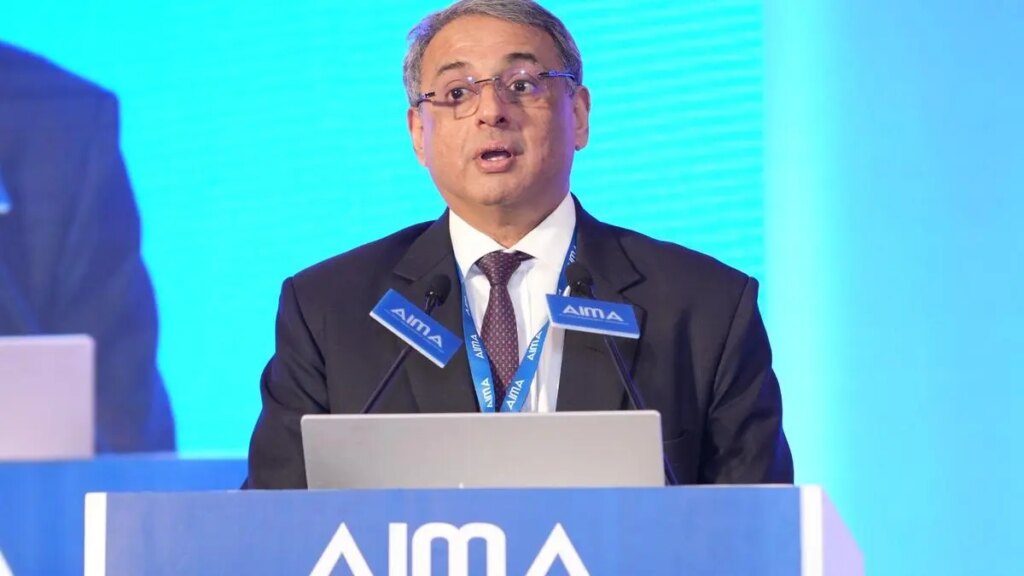
Tata Steel US Tariff Exemptions: Company Negotiates With American Customers Amid New Trade Policies
Tata Steel US Tariff Exemptions: Company Negotiates With American Customers Amid New Trade Policies
Published April 18, 2025
Tata Steel is actively seeking US tariff exemptions for specialized steel products exported from its European operations that aren’t manufactured domestically in the United States. (Image: Representative)
Table of Contents
- Tata Steel US Tariff Exemptions: Current Negotiation Strategy
- Specialized Steel Products Seeking Exemptions from US Tariffs
- Impact of 25% Tariffs on Tata Steel’s European Operations
- Current Export Patterns and US Origin Rule Challenges
- Why India Exports Aren’t a Viable Alternative to European Shipments
- Tata Steel’s Green Steel Production Development in Different Markets
- Future Outlook: Tata Steel’s Evolving Global Trade Strategy
Tata Steel is actively pursuing US tariff exemptions through negotiations with American customers as global trade policies and protectionist measures reshape the steel industry’s trade landscape. The company’s European operations, particularly from the Netherlands, face significant challenges following the Trump administration’s reinstatement of a 25% tariff on all steel and aluminum imports effective March 12, 2025. TV Narendran, MD and CEO of Tata Steel, revealed these tariff exemption efforts during comments to businessline on the sidelines of an event organized by the All India Management Association (AIMA).
Tata Steel US Tariff Exemptions: Current Negotiation Strategy
The core of Tata Steel’s US tariff exemptions strategy involves direct engagement with American customers who depend on specialized steel products that aren’t manufactured domestically in the United States. “Some products we export from the Netherlands to the US aren’t even made there. So our customers and we are looking to see if there are some exemptions for those products,” Narendran explained, highlighting the company’s targeted approach to securing exemptions for critical supplies.
“Some products we export from the Netherlands to the US aren’t even made there. So our customers and we are looking to see if there are some exemptions for those products.”
These Tata Steel US tariff exemptions negotiations represent a critical element in the company’s broader strategy to adapt to increasingly protectionist global trade policies. For products unable to secure exemptions, the company is shifting focus toward cost-sharing arrangements with American buyers, with Narendran noting, “Otherwise, of course, the discussion is on how we deal with the tariffs. That is a cost. But the question is how can our customers and I share those tariffs.”
Specialized Steel Products Seeking Exemptions from US Tariffs
The Tata Steel US tariff exemptions efforts focus primarily on specialized steel products from the company’s European operations that fill critical gaps in American domestic manufacturing capabilities. These high-value products include:
Key Tata Steel Products Seeking US Tariff Exemptions
- Packaging Steels: Specialized materials for food and beverage containers not widely manufactured in the US
- Tubular Products: High-specification steel for oil and gas industry applications
- Automotive-Grade Steel: Advanced high-strength materials for vehicle manufacturing
- Construction-Specific Steel: Specialized grades for infrastructure and building projects
- High-Quality Industrial Steel: Materials with specific properties for manufacturing processes
Packaging steel represents a particularly important category for Tata Steel’s US tariff exemptions requests, as this product category is generally not manufactured domestically in the United States but remains essential for American food and beverage producers. The specialized nature of these products strengthens the company’s case for exemptions, as their absence could create supply chain disruptions for American manufacturers who lack domestic alternatives.

Specialized steel products from Tata Steel’s European operations include packaging steel and high-quality materials for automotive and construction industries. (Image: Representative)
Impact of 25% Tariffs on Tata Steel’s European Operations
The reinstated 25% tariff poses significant challenges for Tata Steel’s US tariff exemptions strategy and overall transatlantic business model. The company’s IJmuiden plant in the Netherlands serves as a central node in its supply chain to American customers, with approximately 10-12% of this facility’s production exported to the United States. Similarly, Tata Steel operates the UK’s largest steelworks in Port Talbot, which exports approximately $100 million of steel annually to American buyers.
European Operations Impact
- Netherlands IJmuiden plant: 10-12% of production exported to US
- Specialized products face 25% tariff barrier
- Established supply chains disrupted
- Cost competitiveness challenged
UK Operations Impact
- Port Talbot steelworks: $100M annual US exports
- Additional 25% cost burden
- Long-standing customer relationships threatened
- Limited market alternatives
Without successful US tariff exemptions, Tata Steel faces difficult choices regarding its European export strategy. The 25% tariff significantly impacts price competitiveness, potentially forcing the company to absorb costs, negotiate cost-sharing arrangements with customers, or potentially lose market share to domestic US producers despite offering specialized products unavailable from American mills.
Current Export Patterns and US Origin Rule Challenges
Complicating Tata Steel’s US tariff exemptions efforts are the strict “melted and poured” origin rules now being enforced by American authorities. These rules, which determine a product’s country of origin based on where the steel was originally melted and poured rather than where final processing occurred, create additional hurdles for Tata Steel’s European operations when seeking exemptions.
Current US Export Challenges
- “Melted and Poured” Origin Rules: Require full traceability to original steel production
- No Country-Specific Exemptions: Unlike previous tariff regimes, blanket approach applies
- Complex Supply Chains: Modern steel production often involves multiple countries
- Product-Specific Approach: Requires detailed documentation for each steel category
- Customer Advocacy Needed: American buyers must help make case for specialized products
The US refusal to offer country-specific exemptions has shifted Tata Steel’s US tariff exemptions strategy toward product-specific requests. This approach requires detailed documentation proving that specific steel categories are unavailable from domestic US producers in sufficient quantity or quality, necessitating stronger collaboration between Tata Steel and its American customers to present compelling exemption cases.
Why India Exports Aren’t a Viable Alternative to European Shipments
While Tata Steel’s US tariff exemptions focus on European operations, a natural question arises about redirecting exports through the company’s Indian facilities. However, Narendran explicitly ruled out this approach, explaining that direct exports from India to the US face even greater barriers than European shipments.
“When India exports to the US, it already has a lot of trade action against it from the past. And the US is one of the most difficult markets to service in any case because of the fact that if volumes go up (from India), there will be trade action.”
This statement clarifies why Tata Steel’s US tariff exemptions strategy remains centered on its European operations despite the new tariffs. The company faces established trade actions against Indian steel exports to the US market, creating an even more challenging export environment than the new 25% tariff on European products. Additionally, Narendran noted that Indian operations continue to see “enough opportunity” in domestic markets, reducing pressure to find export alternatives.
Tata Steel’s Green Steel Production Development in Different Markets
Beyond US tariff exemptions, Tata Steel is navigating varying green steel development trajectories across its global operations. Narendran highlighted significant differences between European and Indian markets in terms of green steel production readiness:
European Green Steel Development
- Concerted policy push over 5-10 year period
- Established policy roadmap
- Developed infrastructure plan
- Customers willing to pay premium for green steel
- Integrated approach across stakeholders
Indian Green Steel Development
- Policy still evolving and under discussion
- Infrastructure “just about being built”
- Customer hesitancy to pay premium for green steel
- Government procurement initiatives emerging
- Early stage of market development
While not directly related to Tata Steel US tariff exemptions, these green steel developments represent another aspect of changing global trade patterns affecting the company’s long-term strategy. Narendran expressed optimism about India’s emerging public procurement preferences for greener steel, noting, “The government is a big buyer of steel – directly or indirectly,” suggesting potential domestic market growth for green steel products as policies mature.
Future Outlook: Tata Steel’s Evolving Global Trade Strategy
As Tata Steel’s US tariff exemptions negotiations continue, the company is simultaneously rethinking its broader global trade strategy. The current challenges represent one facet of a shifting international trade landscape characterized by increasing protectionism, sustainability requirements, and regional manufacturing preferences.
Tata Steel’s Strategic Adaptations
Key elements of Tata Steel’s evolving approach include:
- Product-Specific Exemption Requests: Focusing on specialized products unavailable domestically
- Cost-Sharing Arrangements: Negotiating tariff impact distribution with customers
- Maintaining Established Supply Flows: Preserving UK and Netherlands export channels
- Market Diversification: Exploring alternative markets while maintaining US presence
- Sustainability Integration: Developing green steel capabilities for future market requirements
The outcome of Tata Steel’s US tariff exemptions negotiations will significantly influence the company’s transatlantic trade model. Success in securing exemptions for specialized products would preserve established supply chains and customer relationships, while failure would likely accelerate market diversification efforts and potentially reshape production priorities at European facilities.
For American manufacturers dependent on Tata Steel’s specialized products, the stakes of these US tariff exemptions discussions extend beyond simple pricing considerations to fundamental supply chain reliability. The coming months will reveal whether product-specific exemptions can be secured for materials unavailable from domestic producers, or if the 25% tariff will create supply gaps in the American manufacturing ecosystem.
Published on April 18, 2025 | Updated on April 19, 2025






